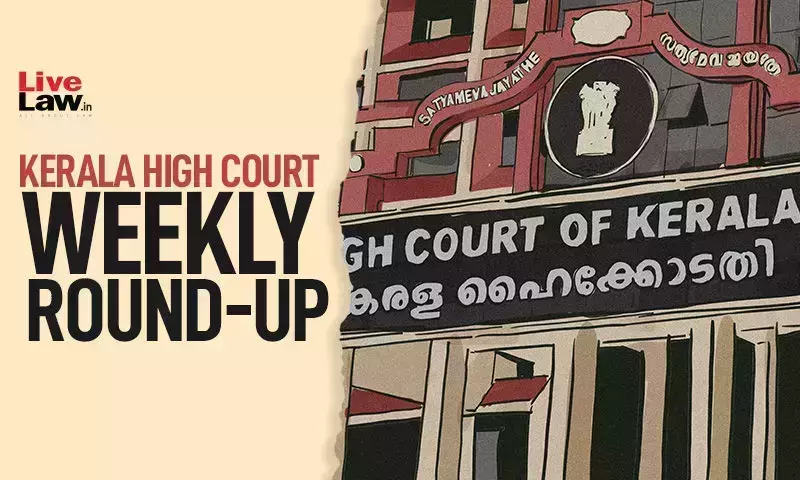Kerala High Court Weekly Round-Up: October 30 – November 5, 2023
Tellmy Jolly
5 Nov 2023 12:07 PM IST

Next Story
5 Nov 2023 12:07 PM IST
Nominal Index [Citations: 2023 LiveLaw (Ker) 609-628]J.C. Daniel Foundation & Anr. v. State of Kerala & Ors., 2023 LiveLaw (Ker) 609Leela v M.K. Sukumaran, 2023 LiveLaw (Ker) 610Popular Motor Corporation v. State of Kerala & Anr., 2023 LiveLaw (Ker) 611Rajan P v State of Kerala, 2023 LiveLaw (Ker) 612Mohamed v. Kunhalankutty & Ors., 2023 LiveLaw (Ker) 613State of Kerala v...
